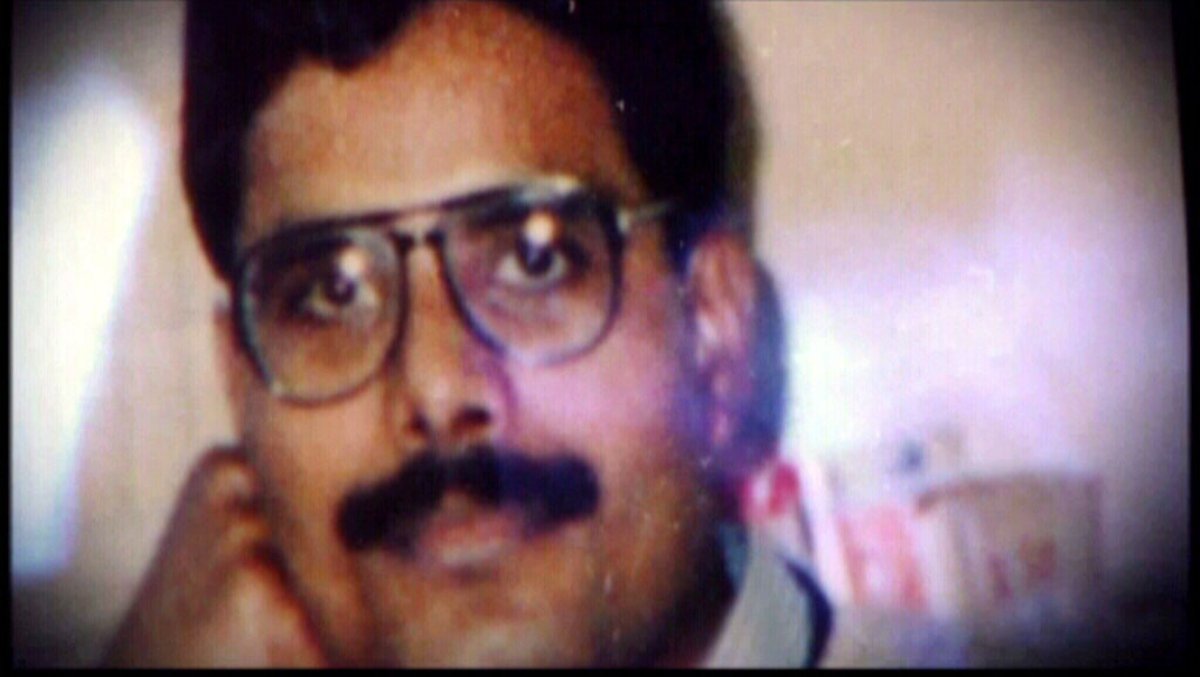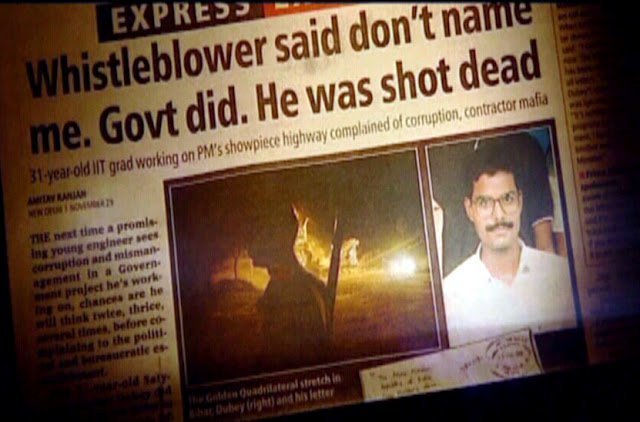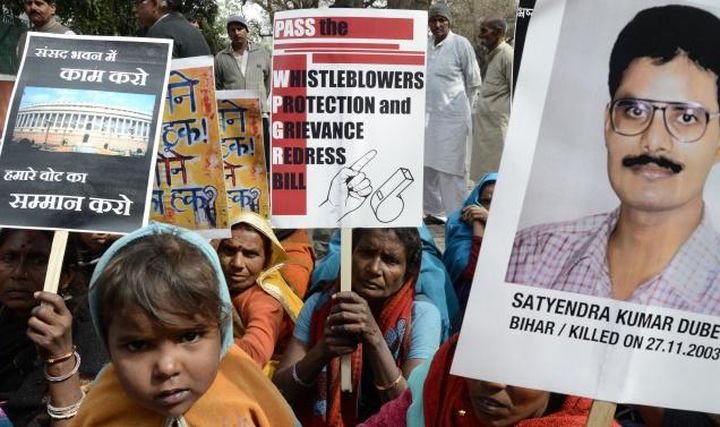On 27 November, 2003, Satyendra Dubey, a civil engineer on deputation to the National Highway Authority of India to work on then Prime Minister Atal Bihari Vajpayee’s ambitious Golden Quadrilateral project, was shot dead in Gaya, Bihar, while returning from a wedding in Varanasi. The documented motive – a petty robbery gone wrong. The speculative reading – the cold blooded murder of a whistleblower who uncovered serious truths regarding corruption within the project.
Few may know Dubey, fewer still may know of the shrouded facts regarding his murder and the involvement of the mafia and the government alike.

Here is a list of a few ‘unproven’ details of the case we feel you should be aware of:
1. Dubey’s original letter to NHAI higher ups earned him a transfer.
Dubey’s first few letters to the higher officials at the NHAI regarding financial discrepancies and poor implementation of the building contracts while his time in Koderma, Jharkhand, instigated his transfer to Gaya, Bihar, instead of an investigation into the matter.
2. Dubey’s request to keep his details confidential ignored by the PMO.
Disdained by the ignorance of the NHAI, Dubey mustered the courage to write a letter to the Prime Minister’s Office, asking for his name to be kept confidential which the PMO ignored in subsequent forwarding of the letter.
3. The letter bounced between committees for too long, indicating negligence.
From the Ministry of Road Transport and Highways to the NHAI, and several other committees, Dubey’s letter is claimed to have several signatures and scribbles by different officials, indicating a deliberate drawing out of any investigation or legal proceedings.
4. The seemingly deliberate forwarding of Dubey’s letter is suspected to have been intercepted by the mafia.

5. Prime witness to the murder went missing after interrogation.
The rickshaw puller, Pradeep Kumar, who’s vehicle Dubey was travelling by at the time of the murder was called in for an interrogation by the CBI. A month after the interrogation, Kumar went missing when they sought him for further investigative questioning.
6. Primary suspects of the murder found dead within 25 hours of their interrogation.
7. Convicted assailants are speculated to be wrongly accused.
Three suspects, Mantu Kumar, Udai Kumar and Pinku Ravidas were convicted of robbery and murder nearly 6 years after the incident. The murder was announced to be not premeditated. Dubey’s brother suspected foul play.
8. Primary convict, Mantu Kumar, escaped during the court hearing on September 19, 2005.
9. The Whistleblower’s Act presented after Dubey’s murder still not functional.
The Whistleblower’s Act presented to increase protection of whistleblowers was never fully functional after its passing. Subsequent amendments made to the act ironically enough are considered to make things tougher for the whistleblowers.

10. Dubey claimed the involvement of Korean, Russian, and Chinese, companies in the corruption.
Dubey’s letter to the PMO claimed the involvement of major international companies that collared the GQ project through huge pay offs, and sourcing out projects to local contractors at bargains, pocketing heavy margins.

















